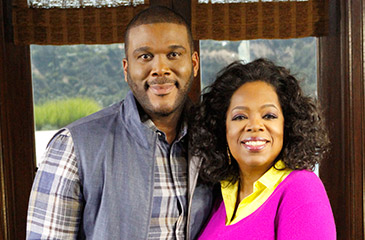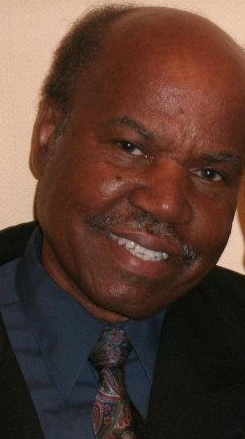To appreciate the impact of "The march” on the conscience of America, it is helpful to look at both times before and surrounding 1963 and 50 years thereafter.
Before.
Restrictions were everywhere to discourage the dreams of black people.
 The movie, The Butler, is a stark example of the difficulties faced by black people. Cecil Gaines, the protagonist in the film, worked more than 20 years doing the same labor in the White House as his white counterparts did – but for 40% less in salary. Complaining about the situation meant you were not only risking your livelihood but your life, as lynching for the slightest infraction was commonplace in America, especially the South. They were expected to know their place and not to aim beyond a certain point unless allowed and deemed necessary by white America. They inhabited, as it were, a life of caged birds whose wings had been clipped. No wonder they sang the "blues," a sad, plaintive musical genre that gave voice to the struggles and inequities of a people.
The movie, The Butler, is a stark example of the difficulties faced by black people. Cecil Gaines, the protagonist in the film, worked more than 20 years doing the same labor in the White House as his white counterparts did – but for 40% less in salary. Complaining about the situation meant you were not only risking your livelihood but your life, as lynching for the slightest infraction was commonplace in America, especially the South. They were expected to know their place and not to aim beyond a certain point unless allowed and deemed necessary by white America. They inhabited, as it were, a life of caged birds whose wings had been clipped. No wonder they sang the "blues," a sad, plaintive musical genre that gave voice to the struggles and inequities of a people.
Black and white entertainers could not perform on stage together.
They were not allowed to play major league baseball.
They could not attend certain schools. If by some miracle they happened to get into college, the options upon graduation were limited.
The story is told of Sarah Delaney, a member of the famous black family, the Delaneys of North Carolina. While attending dental college she turned in a paper that received an F. She realized something was wrong and persuaded a Jewish friend to pass in the same paper which received an A. She accosted the professor who was indignant that someone of her status would dare question his authority, responding she ought to be grateful that she was even there.
Amazingly enough, years later, she was asked if she was in favor of affirmative action and she answered "No,” adding that people would view blacks in certain positions as unqualified, attaining such posts because of a quota system. She added, however, that she understood the reason behind the law because some people would never be given a fair chance.
In 1955, Emmitt Till was murdered and mutilated for allegedly whistling at a white woman.
The National Guard had to accompany the Little Rock Nine to Central High school in Arkansas and Medgar Evers to college in Mississippi.
 Governor George Wallace stood in front of the college door in Alabama, defying a federal edict, claiming "segregation now, segregation tomorrow, segregation forever.”
Governor George Wallace stood in front of the college door in Alabama, defying a federal edict, claiming "segregation now, segregation tomorrow, segregation forever.”
It would have been political heresy to suggest blacks for some elected positions, let alone the highest office in the land.
They were confined to ramshackled neighborhoods to heighten the sense of depression and desperation.
Jay Ambrose, former editor of Scripps Howard newspapers wrote this in a recent column,
There was ugly viciousness, and though the talk I heard from my parents' friends was mostly far from hateful, it was still denigrating, as if these were clearly inferior people, different from us, not really meant to mix too much. A prime exception was my mother. When I was six years old, she walked me to school through a black neighborhood and when I was astonished by the rundown houses, asking her why people lived like that, she answered with words I have never forgotten. Because white people are not fair to them, she said.
That was the crux of the March and the watershed, seminal "I Have A Dream" speech:
Be fair to me.
I do not want special treatment.
Treat me like everybody else.
I am a man.
I am a woman.
Allow me to perform, for better a worse, on the same level playing field as you.
Do not shoot me in the foot, put hurdles in my way, then become shocked and surprised and decry the fact that I am not keeping up.
All I want is for you to redeem the check and honor the promissory note that you mentioned years ago in the Declaration of Independence.
Do not be put off by the dark hued exterior, underneath I am just like you, same hopes, dreams, aspirations and desires.
I can be your neighbor.
I can be your friend.
I can be your husband.
I can be your wife.
Just give me a shot.
Judge me no longer by the color of my skin but by the content of my character.
You are my brother, you are my sister, take me by the hand and together let us go and conquer the world.

Before I continue, allow me a temporary aside for a moment.
It has been asked how could the German people, the South Africans, The Hutus and Tutsis of Rwanda commit such horrific, atrocious acts against humanity.
Once you have drunk of the elixir of hate, anything is possible.
Therefore, a logical, reasonable explanation is not forthcoming.
After.
Nevertheless, the old mores die hard. They are banished only after an arduous struggle of kicking and screaming.
The so-called "Birthers" still question the birthplace and nationality of President Obama.
Joe Arpaio, sheriff in Arizona, has accused the state of Hawaii of issuing a false birth certificate to the president. There is a conspiracy, he says, and he is in possession of evidence to prove it.
Recently, a man in Massachussets has been questioned in a plot to assassinate Mr. Obama, declaring that he is an illegal and illegitimate president.
One would be disengenuous to not believe that these are racist attitudes rooted in the belief that black people are not worthy of certain occupations.
Some of the speakers have complained about the lack of progress and the dire straits some of us still find ourselves.
That is true but there are points of light to be seen and causes to celebrate and rejoice.
I choose to focus upon them.
We can enter the front door of any establishment, relieve ourselves in any restroom and drink from any water fountain.
We can live anywhere our money can buy and flag down a taxi in New York.
We and America have come a long way.
Consider this seismic shift in the cultural and social demeanor of the country.
Before 1963, miscegenation was not only frowned upon, it was downright illegal in some states.
In a recent poll, an astounding 84 percent of all Americans approved of interracial marriages.
We may not be where we could be or should be but, glory to God, we are not where we were.
We had the courage to face our demons and overcome them.
We may not yet be in the Promised Land but it is so close we can literally taste the milk and honey.
We may not be sleeping in the big house but we are securely on the porch and one day we are going to kick in the door and take up residence.
We are on the bank of the Jordan River and it is necessary to foster a Joshua mentality and cross over.
It is time to emancipate ourselves from mental slavery, cultivate an entrepreneurial attitude and develop personal responsibility.
Take a page out of the lives of Tyler Perry and Oprah. Ponder these responses to questions from an interviewer of Essence Magazine:

Tyler: I do not think in terms of racial experiences anymore.
Oprah: I don't either.
Tyler: "Even though I am a black man writing plays and movies with black people in them, the themes are universal. I realized, very early on, the experiences I write about
are human.
In a nutshell, that was the goal of Dr. King and those marchers so long ago, just regard me, no more, no less, good or evil, as a simple human being.
If you’re feeling sad, tired, discouraged and despairing about continuing the fight, take heart from a line in King's last speech, which says, "we as a people will get there together."
Reasons abound for you to feel optimistic.
Discard the victim mindset.
"Rise up you mighty race," according to Marcus Garvey, as hope and change are still possible.
Out of the flames of discrimination and disadvantage, the fruit of your ancestors' blood, sweat and tears have emerged, arguably the most influential woman in America (Oprah) and the present occupants of the White House.
If it can happen for them, it can happen to you.
As Michelle Obama said when her husband was elected in 2008,"I could not be prouder of my country."
To that I say, Thank God Almighty and God Bless America.
 V. Knowles is a husband and father with an interest in penning issues that serve to uplift mankind. He melds his love for Classic literature, The Bible and pop culture - as sordid as it may be - into highly relatable columns of truth, faith and justice. Hence the name: Just Thinking. If he's not buried in a book or penning his next column, you may find him pinned to his sectional watching a good old Country and Western flick.
V. Knowles is a husband and father with an interest in penning issues that serve to uplift mankind. He melds his love for Classic literature, The Bible and pop culture - as sordid as it may be - into highly relatable columns of truth, faith and justice. Hence the name: Just Thinking. If he's not buried in a book or penning his next column, you may find him pinned to his sectional watching a good old Country and Western flick.

